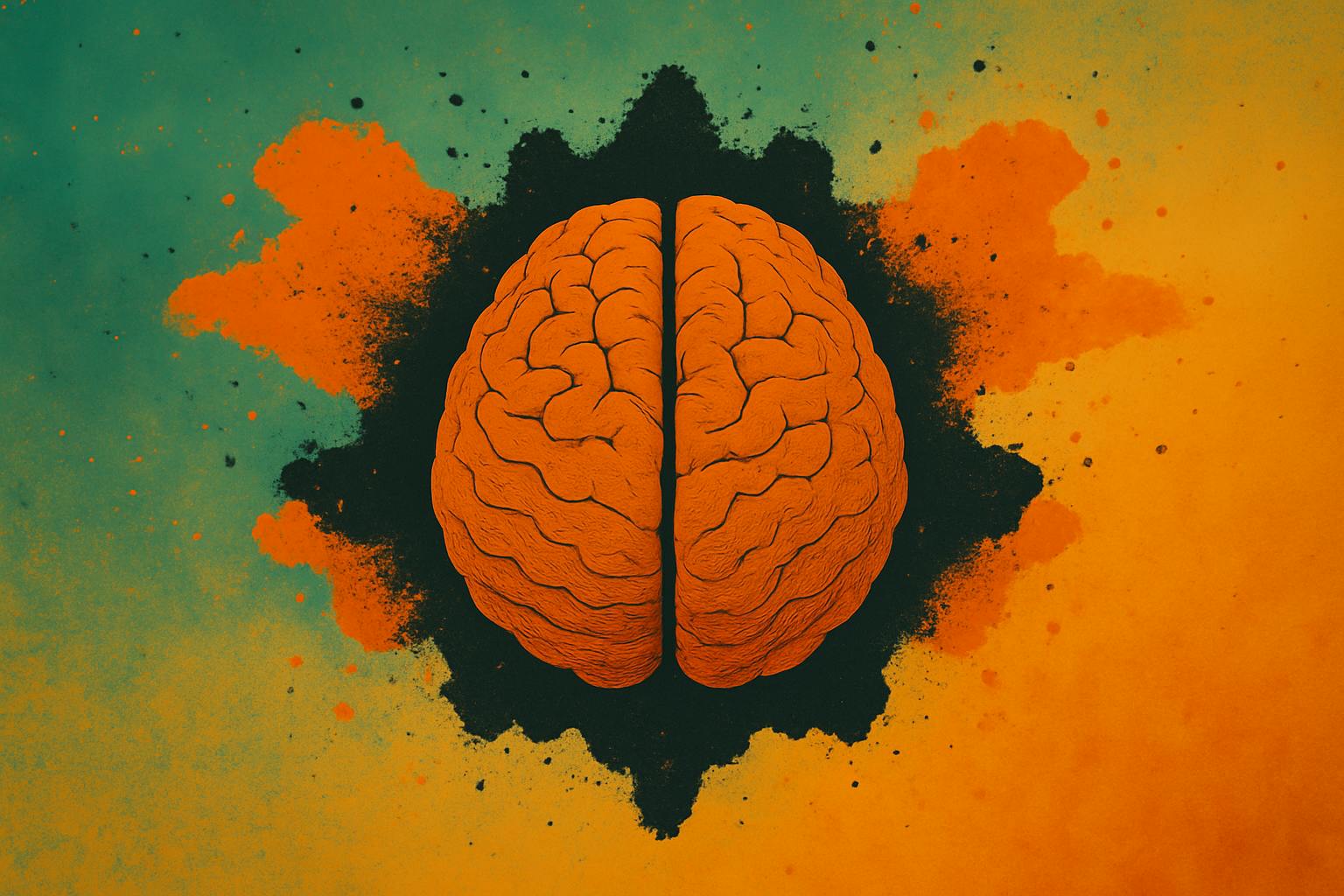The em dash—sleek, versatile, elegant—is the Swiss Army knife of punctuation. It opens syntactic space with a kind of raw immediacy, as though a piece of writing is thinking aloud in real time. More graceful than the semicolon, less fussy than parentheses, it offers a pause that’s both precise and expressive, like language taking a breath before leaping forward with newfound clarity. It’s grammar not just as structure, but as choreography: a punctuation mark that reshapes meaning mid-step.
But in 2025, the em dash is having a moment—and not in a good way. Thanks to AI, this sleek, versatile character is now at the center of a low-simmering skirmish. Hardly a war. More like a passive-aggressive Thanksgiving dinner argument between two cousins, one of whom reads n+1 and the other who thinks grammar is just vibes.
The controversy isn’t about the mark itself, which has been with us since the 18th century, but rather about who’s using it. Or more precisely, what is using it. Because AI—specifically, large language models like ChatGPT and Claude—uses the em dash a lot. Like, more than most human writers would. Like, alarmingly often.
One camp—let’s call them the Em Dash Truthers—is worried about em dash overuse. For the Truthers, this isn’t just about style. It's a blinking red light on the dashboard of human authorship. The em dash, they argue, has historically served as a typographical rendering of thought in motion, the click-whirr of the conscious mind. It’s where voice lives. And when machines begin overusing this particular mark, the worry is not merely aesthetic but existential. It suggests that AI is not only imitating our thoughts but impersonating our inner lives—our ambivalence and breathless associative logic—and in doing so, flattening what was once authentically varied into something eerily consistent.
According to Truthers, the em dash becomes, perversely, a sign of inauthenticity precisely because it’s trying so hard to sound human. To the point that em dashes have quietly become a kind of tell, not just for AI authorship, but for human laziness: the shortcut punctuation of a generation too impatient to revise for clarity. It’s affectation without affect. Jazz without improvisation.
But not everyone’s wringing their hands over em dash overuse. Enter the Grammatical Chillists, who roll their eyes at all of this. Come on. It's a dash. You're projecting. AI uses em dashes a lot because they’re useful and because LLMs have been trained on a gigantic corpus that includes all the best writers (most of it scraped from humans who were never credited or paid, but here we are). They inject rhythm and organize information—modulating sentence logic without the pomposity of semicolons or the squirrelly apologetics of parentheses. Sure, maybe AI leans on em dashes a little too much, the way a college freshman discovering Cormac McCarthy might wage war on commas and quotation marks. But isn't that just a phase of learning?
To fret over this, in the Chillist view, is to confuse literary aesthetics with philosophical doomscrolling. AI or human, who cares? Just delete the damn thing if it bugs you so much.
There is a very real tension between the Truther and Chillist camps. On the one side, those who believe style encodes soul. And on the other, those who see style as technique, not essence. The em dash, in its slender, efficient ambiguity, ends up standing in for the larger question of what we’re losing—or imagine we’re losing—as machines learn to speak like us. The death of authentic expression, or just a change in accent? A punctuation tic, or the end of voice itself? The debate hinges not on the em dash, but on what we assume lurks behind it: a mind, a machine, or something increasingly hard to tell apart.
If I’m being honest—which I try to be, though even that impulse now feels performative when writing in the age of AI—I’ve started second-guessing my own em dashes. I’ll write one—like just now—and feel a twinge of guilt, a flicker of self-surveillance, as if some imagined reader will clock my punctuation and think, Ah, there it is, the synthetic flourish. A machine’s fingerprint. Or worse, a human trying to sound like one.
I’ve always used em dashes. They’re how my thoughts breathe. But now, I hover over each one like it's a trapdoor. Should I revise it into a semicolon? Break the sentence in two? Deploy parentheses instead? Style, once a form of identity, is now a forensic site.
In the age of AI, every em dash is evidence. But of what? My authenticity? AI authorship? Human laziness? Call it my complete and total inability to stop overthinking a Single. Horizontal. Line.
In the end, it’s all a typographic Rorschach test. The em dash itself is neutral. We’re the ones reading meaning into it. What you see in it probably says more about you—your anxieties, your aesthetics, your trust in the human voice—than it does about the mark itself. And maybe that’s the real tell: not how you punctuate, but how much you worry about it.
Which naturally makes me wonder about this essay itself. How many em dashes have I used? Should I Ctrl+F and count? Would that make me a Truther or a Chillist? Am I performing anxiety about em dashes, or genuinely experiencing it? Does it even matter? At some point, the self-awareness becomes indistinguishable from the thing itself. At some point, you're just—


